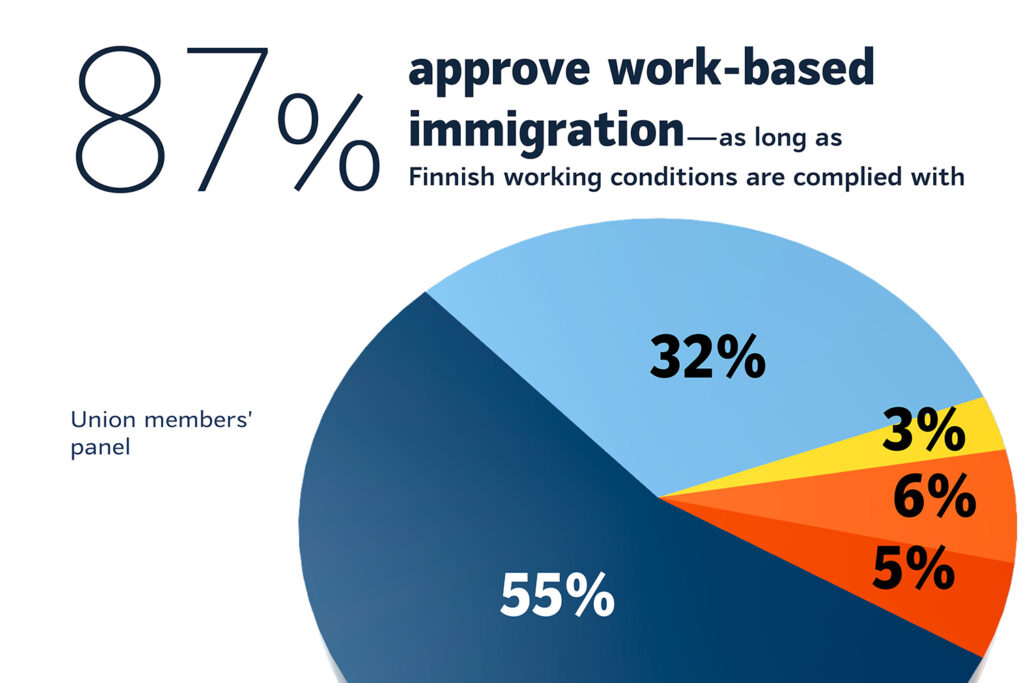Unions demand ten per cent pay rise
The Industrial Union seeks a 10 per cent pay rise over the next two years. In the first year, the pay rise would be 6 per cent, in the second 4 per cent. To guarantee a real pay rise for the lower income earners, too, all wages and salaries should be raised in the first year by at least 150 euro per month, and at least 100 euro in the second year.
This is the common goal of member unions of the Central Organisation of Finnish Trade Unions (SAK). The unions went public with their demands in November. The SAK unions will be negotiating their collective agreements throughout the autumn and winter.
– Employees’ purchasing power has been decreasing dramatically. The reason for this is the rapid and considerable rise in prices. Now, people get less with their pay than before. To correct this, we need a bigger pay rise than before, says Riku Aalto, president of the Industrial Union.
The rate of inflation has recently slowed down, but the gap in purchasing power still remains, Aalto says. The unions’ pay rise goal takes into account the previous loss of purchasing power and inflation during the next two years.
Employees’ purchasing power has been decreasing dramatically.
It is something of a new development for the unions to disclose their pay rise demands in advance. It is also unusual that the SAK member unions seek to do so in unison. But now, unions want to respond to the intensive coordination of collective bargaining employers have been carrying out for many years. However, each union will continue to negotiate their own collective agreements independently.
The Finnish Food Workers’ Union SEL is one of the unions behind the pay rise demand.
– The pay rise for employees, in particular for those with low incomes, goes directly towards consumption. This stimulation is badly needed in the Finnish economy and to boost employment. PM Orpo’s Government has negatively affected domestic demand by increasing insecurity in working life and contributing to unemployment. Now, the companies must bear responsibility and prevent the collapse of domestic consumption, says Veli-Matti Kuntonen, SEL president.
Stagnated negotiations
Collective bargaining for the technology industry has been going on since September with no real progress.
– It has become clear that we can get no further by negotiating, the Industrial Union president Riku Aalto says, explaining the reason behind the strike warning.
Aalto points out that the strike warning is not only down to disagreement on the pay rise issue.
– It is a question of the entirety of the package, not only pay. Negotiations had already stagnated before we went public with our pay rise demands.
It has become clear that we can get no further by negotiating.
The collective agreement for the technology industry expires at the end of November. After that, strikes are both legal and possible until there is a new agreement.
Some Industrial Union collective agreements for the chemical sector will expire at the end of the year. Negotiations began in October and are still ongoing.
In the mechanical forestry sector the Union has this autumn renewed company specific collective agreements with the Metsä Group and Stora Enso. The content of the agreements has not been made public. In total, the union has some 110 agreements with companies in the sector.




